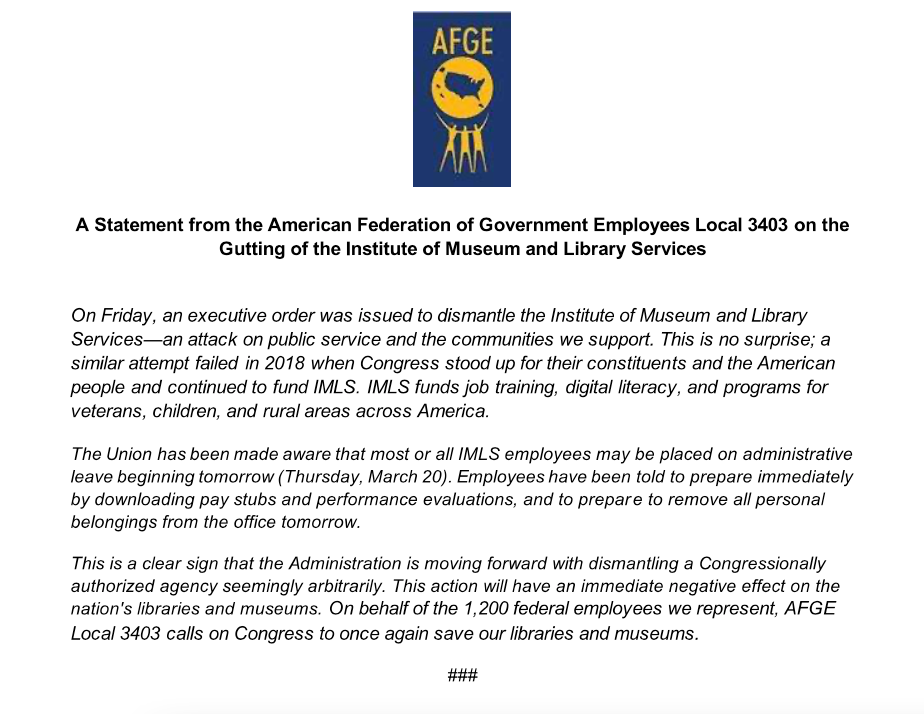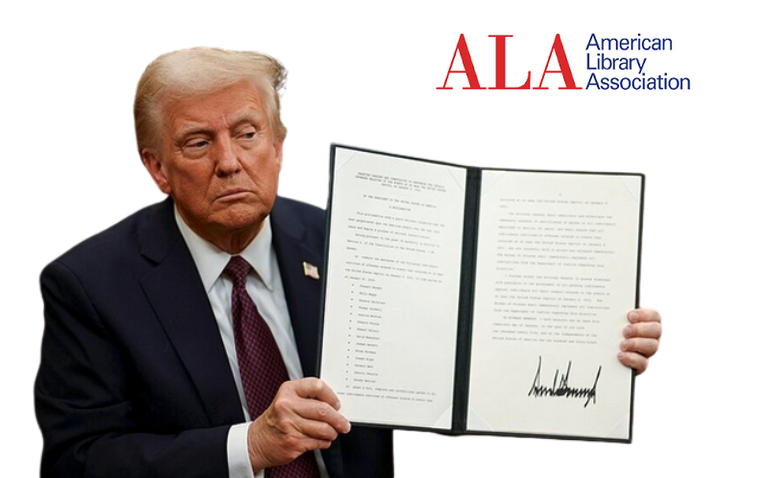Union Says IMLS Employees to Be Put On Administrative Leave; ALA Declares a ‘Five Alarm Fire’
"We’ve all seen the news about the unjustified, ill treatment of federal employees across many agencies, and now it has come squarely to the library community,” ALA's Alan Inouye wrote.

In a statement, reps from the American Federation of Government Employees Local 3403 said that it has been "made aware" that "most or all" employees at the Institute for Museum and Library Services could be placed on administrative leave" beginning Thursday, March 20.
"This is a clear sign that the Administration is moving forward with dismantling a Congressionally authorized agency seemingly arbitrarily," the AFGE statement goes on to say. "This action will have an immediate negative effect on the nation's libraries and museums."
Meanwhile, in a March 19 article for American Libraries, Alan Inouye, interim associate executive director of American Library Association’s Public Policy and Advocacy Office, called the Trump administration's bid to destroy IMLS “a five-alarm fire,” adding that ALA has delivered more than 55,000 messages urging Congress to spare the agency since March 15.
“The president cannot fully eliminate IMLS without congressional approval, but his order takes every possible step in that direction,” Inouye explained in the report, noting that the Trump’s FY 2026 budget proposal, which is expected soon, will once again propose that Congress shutter the agency.
The administration is also expected to withhold FY2025 funds from being distributed—even though Trump signed a continuing resolution on March 14 that includes funding for IMLS at FY 2024 levels through September.

In his March 14 Executive Order, Trump gave agency officials seven days to submit a report to the OMB (Office of Management and Budget) explaining "which components or functions of the governmental entity, if any, are statutorily required and to what extent.” Furthermore, the order commands OMB director Russell Vought—architect of the controversial conservative governing blueprint Project 2025—to “reject funding requests…to the extent they are inconsistent with this order.”
In addition to its advocacy work in support of IMLS, Inouye said ALA is also "vigorously exploring legal possibilities" in response to the executive order.
“As we focus on the public policy and advocacy aspects of this latest development, let us remember that there is a direct human toll. You can guess how the employees of IMLS must be feeling at this time, with the heightened uncertainty about their futures,” Inouye writes. “We’ve all seen the news about the unjustified, ill treatment of federal employees across many agencies, and now it has come squarely to the library community.”
ALA this week has also created an FAQ about the Trump executive order.


